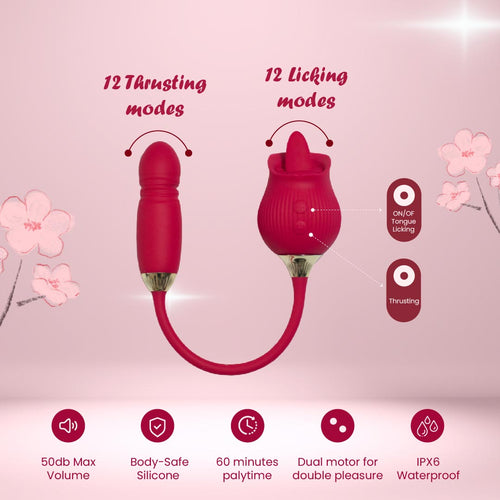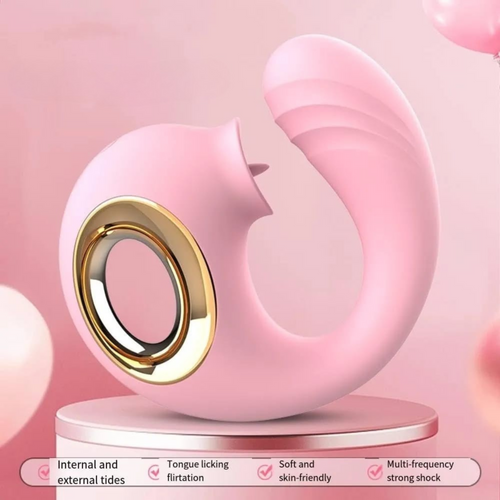
Is It Normal to Have Pain During Sex?
Pain during sex affects many people, yet often goes undiscussed. This guide is for anyone experiencing discomfort during intimate moments and wondering if their pain is normal. We'll explore common physical causes like vaginal dryness and infections, examine how psychological factors such as stress and anxiety can contribute, and offer practical treatment options to help you enjoy a more comfortable sex life.
Understanding Pain During Sex: What's Normal and What's Not
Common Sensations vs. Concerning Pain
Sex shouldn't hurt. That's the simple truth. But the line between pleasure, discomfort, and actual pain isn't always clear.
Normal sensations during sex might include:
-
A feeling of fullness or pressure
-
Mild stretching sensations
-
Temporary sensitivity after orgasm
-
Slight soreness after vigorous activity
What's not normal? Pain that's sharp, burning, or so intense it makes you want to stop. If you're gritting your teeth through sex, something's wrong.
Many people (especially women) have been conditioned to think pain is just part of the package. It's not. About 75% of women experience painful sex at some point, but that doesn't make it normal.
When Discomfort is Expected for Beginners
First-timers, listen up. Some initial discomfort is common when you're just starting your sexual journey:
-
Nervousness can cause tension in your muscles
-
Learning what feels good takes time
-
Your body needs to adjust to new sensations
-
Communication skills with partners develop gradually
For vulva-owners, the first few penetrative experiences might feel strange or uncomfortable as tissues stretch. Using plenty of lube helps tremendously.
For anal play beginners, discomfort is common without proper preparation, relaxation, and lubrication.
The key difference? Beginner discomfort should improve with time, relaxation, and communication—not get worse.
Signs That Pain Requires Medical Attention
Don't ignore these red flags:
-
Deep pain during thrusting
-
Burning sensations during or after sex
-
Pain that lasts hours after sex
-
Bleeding not related to menstruation
-
Pain that's getting worse over time
-
Pain accompanied by unusual discharge
Pain during sex can signal various conditions including endometriosis, vaginismus, infections, or pelvic inflammatory disease. Men might experience pain from prostatitis, phimosis, or STIs.
The bottom line? Pain is your body's alarm system. When it goes off during something that should feel good, it's telling you something important. Listen to it.
Physical Causes of Sexual Pain
A. Insufficient Lubrication and Arousal
Pain during sex often boils down to one simple issue: not enough lubrication. Your body needs time to get ready, and rushing things can lead to discomfort or even tearing.
When you're aroused, your vagina produces natural lubrication. Without enough of it, friction increases and pain follows. This can happen for countless reasons - stress, medication side effects, or simply not enough foreplay.
The fix? Slow down. Give yourself time to become fully aroused before penetration. And don't be shy about using lubricants - they're game-changers for many people. Water-based lubes work with condoms and toys, while silicone-based options last longer but shouldn't be used with silicone toys.
B. Infections and STIs
That burning sensation during sex might be signaling an infection. Yeast infections, bacterial vaginosis, and urinary tract infections commonly cause discomfort during intimacy.
Sexually transmitted infections like chlamydia, gonorrhea, herpes, and trichomoniasis can all trigger pain during sex. Many STIs don't show obvious symptoms, which is why regular testing is crucial if you're sexually active.
Don't ignore persistent pain - infections typically worsen without treatment, and some can lead to serious complications if left unchecked.
C. Underlying Medical Conditions
Several medical conditions can make sex painful:
-
Endometriosis: Tissue similar to uterine lining grows outside the uterus, often causing deep pain during thrusting
-
Pelvic Inflammatory Disease (PID): Infection of reproductive organs causing pain and inflammation
-
Vaginismus: Involuntary tightening of vaginal muscles making penetration difficult or impossible
-
Vulvodynia: Chronic pain around the vaginal opening with no identifiable cause
-
Interstitial Cystitis: Bladder condition causing pressure and pain
These conditions require medical attention - they rarely resolve on their own.
D. Hormonal Changes and Menopause
Hormones play a massive role in sexual comfort. During menopause, estrogen levels drop dramatically, causing vaginal tissues to become thinner, drier, and less elastic - a condition called vaginal atrophy.
But it's not just menopause. Hormonal fluctuations during pregnancy, breastfeeding, or while using hormonal contraceptives can all affect lubrication and tissue health.
Treatments range from topical estrogen creams to hormone replacement therapy, depending on your specific situation and medical history.
E. Anatomical Factors
Sometimes, pain comes down to physical structure. Conditions like:
-
A thick hymen that partially blocks the vaginal opening
-
Uterine fibroids that press against other organs
-
Ovarian cysts causing discomfort during deep penetration
-
Tilted uterus creating pressure during certain positions
The solution might be as simple as changing positions or as complex as minor surgical procedures. Understanding your unique anatomy helps find approaches that work for your body.
Psychological Factors Contributing to Pain
Anxiety and Stress
Pain during sex isn't just about physical issues. Your mind plays a huge role too.
When you're stressed out or anxious, your body tenses up. Your muscles contract. You're not relaxed. And guess what happens when you're not relaxed during sex? Pain.
It's a vicious cycle. You worry about pain, so you tense up, which causes more pain, which makes you worry more next time. Round and round it goes.
Many people also feel performance pressure. Am I taking too long? Do I look okay? Is my partner enjoying this? These thoughts distract you from pleasure and keep your body from responding naturally.
Past Trauma and Its Impact
Previous sexual trauma can absolutely cause pain during sex, even years later. Your body remembers what your mind might try to forget.
This isn't just about sexual assault. Negative experiences like shaming, humiliation, or even medical procedures can trigger physical responses.
Your body might perceive sex as a threat and respond with tension, pain, or complete shutdown as protection mechanisms.
Communication Barriers with Partners
Ever tried having sex while hiding what you're really feeling? That's a recipe for pain.
Many people struggle to speak up about:
-
What feels good
-
What hurts
-
When to slow down
-
When to stop completely
Some fear disappointing their partner. Others worry about seeming "difficult." Some don't know how to have these conversations at all.
Without clear communication, partners can't adjust. They continue doing things that cause discomfort, not knowing any better.
Treatment Options and Solutions
Medical Interventions and When to Seek Help
Pain during sex isn't something you should just put up with. If you've tried basic remedies and still hurt, it's time to talk to a doctor. This is especially important if your pain is severe, getting worse, or comes with other symptoms like bleeding or unusual discharge.
Your doctor might recommend:
-
Medication for specific conditions like infections or endometriosis
-
Hormone therapy for menopausal symptoms
-
Surgical options for structural issues
Don't wait to seek help if pain is disrupting your life. Many people suffer in silence for years when solutions are available.
Self-Care Strategies for Pain Relief
Sometimes simple changes can make a big difference:
-
Take your time with foreplay to ensure proper arousal
-
Try different positions that give you control over depth and movement
-
Communicate openly with your partner about what feels good and what hurts
-
Practice relaxation techniques before intimacy
-
Use a heating pad before sex to relax pelvic muscles
-
Time sex around your menstrual cycle if you notice pattern-related pain
Lubricants and Products That May Help
Dryness is a common culprit for painful sex. The right products can be game-changers:
-
Water-based lubricants: Gentle and compatible with condoms
-
Silicone-based lubricants: Longer-lasting but not for use with silicone toys
-
Oil-based lubricants: Very slippery but can damage condoms and may increase infection risk
-
Moisturizing products: For regular use between sexual encounters
Avoid products with glycerin, parabens, or flavors if you're sensitive. A patch test on your inner arm before applying to sensitive areas is always smart.
Pelvic Floor Physical Therapy
This specialized therapy can work wonders for many causes of painful sex. A pelvic floor physical therapist will:
-
Evaluate muscle tension and trigger points
-
Teach exercises to strengthen or relax muscles as needed
-
Provide manual therapy techniques to release tension
-
Help with dilator therapy for vaginismus
-
Give you tools to practice at home
Many people see significant improvement after just a few sessions. Insurance often covers this treatment, so check your benefits.
Discussing Sexual Pain With Your Partner
Communication Techniques That Work
Pain during sex isn't just a physical issue—it's an emotional one too. Telling your partner can feel awkward, but hiding it only makes things worse.
Try these approaches:
-
Pick a neutral time to talk—not right after a painful experience or when you're about to have sex
-
Use "I" statements like "I feel pain when..." instead of "You hurt me when..."
-
Be specific about what hurts and when it happens
-
Share articles or resources so they understand it's a real medical concern
Sometimes showing is easier than telling. Guide your partner's hand to show where it hurts or use a diagram.
Creating a Supportive Environment
Building trust around this issue takes work from both partners:
-
Never pressure each other for sex
-
Establish a simple signal or safe word to immediately stop if pain occurs
-
Validate each other's feelings—pain is frustrating for both of you
-
Attend doctor appointments together when possible
Remember that how your partner responds says everything about them, not you. A caring partner will prioritize your comfort over their pleasure.
Exploring Alternative Forms of Intimacy
Sex doesn't have to mean penetration. When pain limits certain activities, try:
-
Extended foreplay without the pressure to "finish"
-
Massage and sensual touch
-
Oral and manual stimulation
-
Sex toys designed for external pleasure
-
Erotic reading or watching together
Taking penetration off the table temporarily can actually improve your sex life long-term. You'll discover new preferences and communicate better about what feels good.
Many couples find these alternatives so satisfying they become permanent parts of their intimacy toolkit—even after pain issues resolve.
Conclusion
Experiencing pain during sex is more common than many realize, but it's important to recognize that it's not something you should simply endure. Whether stemming from physical causes like infections, anatomical issues, or conditions like endometriosis, or psychological factors such as anxiety or past trauma, painful sex has identifiable causes and effective solutions. From medical treatments to therapy approaches, various options exist to address both the physical and emotional aspects of sexual pain.
Remember, open communication with both healthcare providers and partners is essential for addressing sexual pain effectively. If you're experiencing discomfort during intimacy, don't hesitate to seek professional help—you deserve a fulfilling, pain-free sex life. By acknowledging the issue and taking proactive steps, most cases of painful sex can be successfully resolved, allowing you to enjoy this important aspect of your relationship once again.












